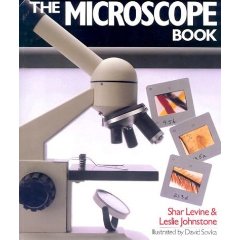
10. Get Comfortable with the Future. The Device uses natural finger gestures and a virtual keyboard — future devices are sure to adapt and refine this interface. Everything from e-book readers to the desktop and laptop computers may soon be touch screen and keyboard-less.
9. Experiment with Voice Applications. Record voice memos, poetry reading, interviews, etc, using the voice recorder application. Even better, you can send your voice message via e-mail.
8. Inexpensive Computer/Gaming Device. If you have wireless internet in your home, your homeschooler can use the device as a game platform and a computer, especially for its robust internet browser. Its cheaper than buying another computer plus a handheld gaming device. The games are cheaper, too.
7. Educational Podcasts – Your homeschooler can download tons of free iTunes U podcasts and watch/listen to them on long car trips, vacations, etc.
6. Free Phone Calls. With a wi-fi connection and ear buds and a microphone/ear bud ensemble, your child can use the free Skype service to call home to/from Skype accounts.
5. Time Management. A powerful calendar app helps your homeschooler manager his/her time by setting alarms for lessons, practice, tasks, etc.
4. Color Screen, Ultra-Portable E-Book Reader. Excellent E-reader apps, such as Stanza, Barnes & Noble and Kindle mean that your homeschooler has instant access to hundreds of free out-of-copyright and purchased e-books in the car, on vacation, or while standing in line for event tickets.
3. Educational Applications. Tons of educational apps make learning on the go really fun and easy. From learning Spanish or French to accessing the Periodic Table of Elements or a dictionary, the iPod Touch is a powerful knowledge center. Check out some of the educational apps available for the iPod Touch. Our favorites are Google Earth and Wolfram|alpha.
2. Handy All-Around Knowledge Device. The device is really like a Swiss Army knife — between the powerful computer, full featured web browser and the thousands of applications available for the iPhone and iPod Touch, the device is really a bargain. Best of all, its beautiful to look at and has a giant cool factor.
1. Challenge Kids to Innovate. Apple technology is usually disruptive technology, which means it changes the way people use technology. There is no doubt that the iPod Touch is just such a device. Young people who get these devices will have distinct advantages over those who don’t. Who knows — these kids will probably find yet unknown uses for the iPod Touch that makes it even more useful!






 I am a huge fan of open source products, and find many compete quite favorably with commercial offerings. Because open source software is either inexpensive or free, students can obtain multitudes of new tools that they otherwise could not afford. To my delight, I recently discovered a free e-book entitled
I am a huge fan of open source products, and find many compete quite favorably with commercial offerings. Because open source software is either inexpensive or free, students can obtain multitudes of new tools that they otherwise could not afford. To my delight, I recently discovered a free e-book entitled 

 The British Library is the national library of the United Kingdom and one of the world’s greatest libraries. We recently discovered the amazing ‘Turning the Pages’ section of their website thanks to a fellow homeschool parent. The British Library website enables anyone with an internet connection to literally turn the pages of old and ancient texts. Furthermore, you can listen to annotated audio and explore ‘up-close’ by magnifying the content anywhere on the page making reading online a completely interactive experience.
The British Library is the national library of the United Kingdom and one of the world’s greatest libraries. We recently discovered the amazing ‘Turning the Pages’ section of their website thanks to a fellow homeschool parent. The British Library website enables anyone with an internet connection to literally turn the pages of old and ancient texts. Furthermore, you can listen to annotated audio and explore ‘up-close’ by magnifying the content anywhere on the page making reading online a completely interactive experience.




